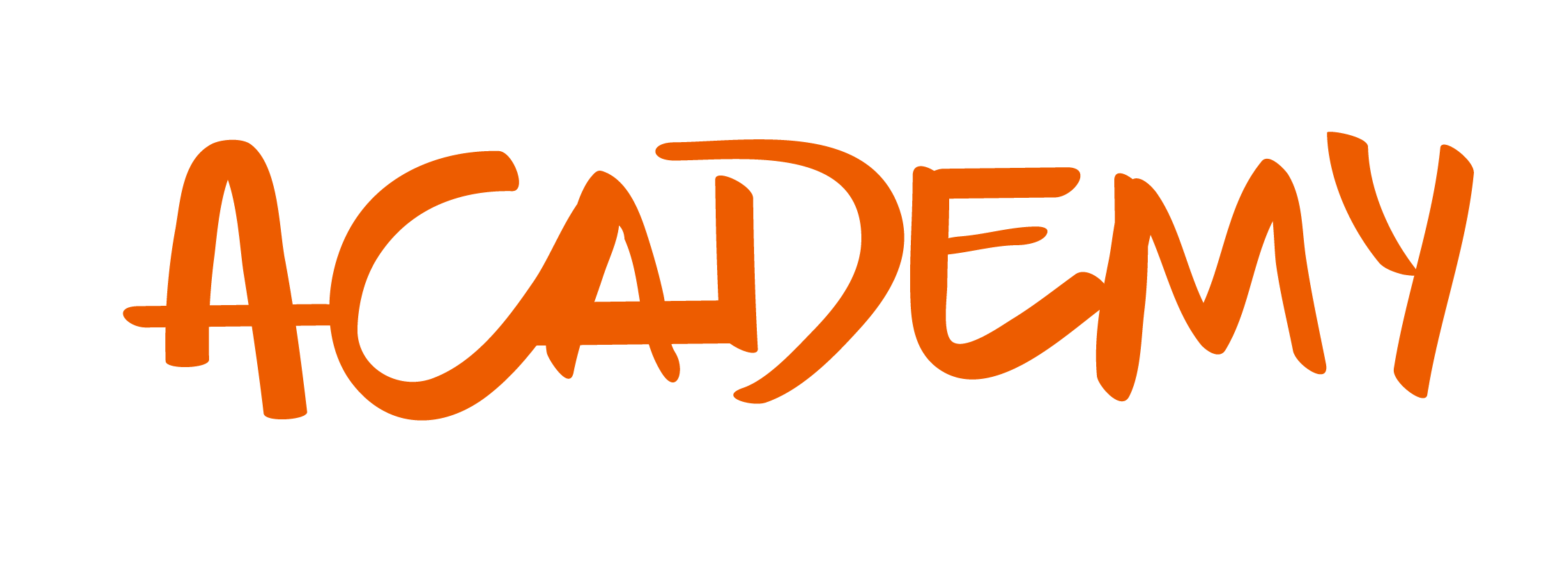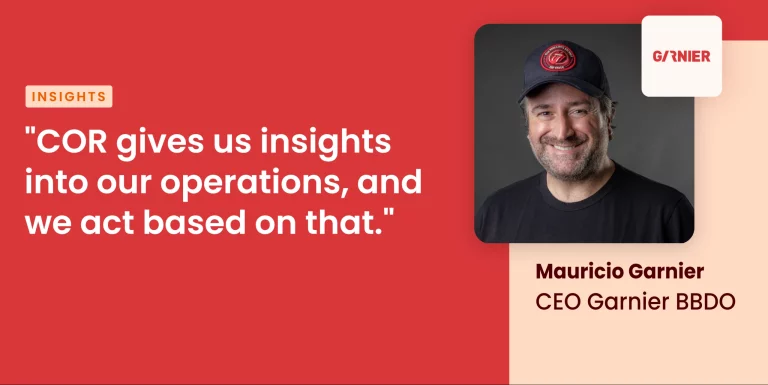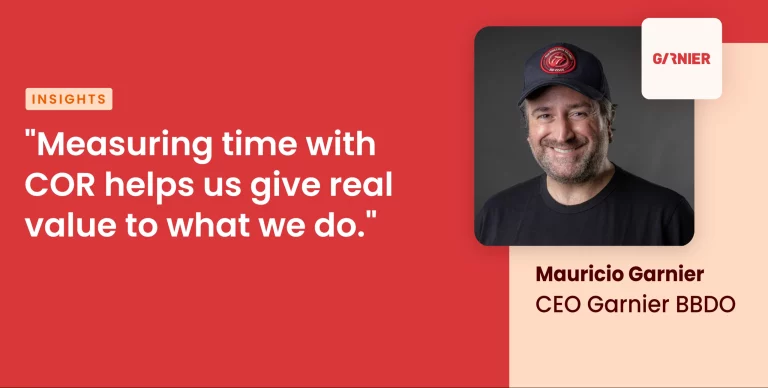The client-agency relationship is when a client appoints an advertising agency for making his ad. It continues till the ad agency provides satisfactory services to him. Such a relationship should always be cordial. There should be mutual trust, confidence, and understanding between the two parties. It is so, since, the primary objective of both sides is the same, to make a successful advertising campaign.
There’s no arguing that the quality of the client-agency relationship is the single biggest predictor of success. Get it right and you’ll enjoy fame, leads, customers, and awards. Get it wrong, and you’ll waste heaps of money, miss incredible opportunities, and probably end up hating your job. It’s just not worth letting this relationship fail.
Research from R3, recently revealed that the industry average for the length of a client-agency relationship is 3.2 years. It also showed that the average length of the 40 best client-agency relationships is 22 years. A good relationship tends to result in the loyalty of the business.
Every marketing agency dreams of having a successful, long-lasting relationship with its client. And every client wants a solid agency partnership. So, how do you make sure you’re set up for success from the start?
Agency-client relationships are just like any other relationship: they go through their up and downs, and to keep maintain them, both parties have to put in an effort.
In recent years, the agency-client relationship has morphed, and things aren’t as simple as they used to be. An increase in competition hasn’t helped the matter. Just like the millennial generation has a reputation for job-hopping and lacking loyalty, so do brands; in fact, 2/3 work with three or more agencies simultaneously. On top of this, many brands are now starting to bring their digital marketing expertise in-house, meaning that they have fewer reasons to outsource the work.
What does this mean to you as an agency? Does it mean you’re going to have to work increasingly harder to keep clients happy and with you for years? Not necessarily; with just a few optimizations here and there, you can get a client-agency partnership, instead of a client-provider, which is so much better, right?
Regardless of your predisposition, lines of communication must be kept to ensure a strong relationship with your client. We will now dive into some key assets about this.
What is a client-agency relationship and why is it important?
A client-agency relationship is a tangible and intangible agreement between an organization and the company that is providing marketing, video, animation, search, advertising, or public relations services. The relationship starts when the agency receives a phone call and the brief is detailed and continues through the pitch and selection process to when the work is awarded and a contract with clear expectations is signed.
The relationship goes so much further than this, to cover how the client and the agency work together. This includes what the deliverables are under the agreement; the rhythm of the meetings, reports, and interactions; how ideas are brainstormed, agreed and implemented; how much collaboration there is between the two parties; how feedback is delivered, and how the contract ends.
The client-agency relationship is key to high-quality work and successful marketing campaigns, client’s goals are prioritized as well as their happiness is ensured which will result in team members going to work with a smile the following morning.
What makes a good client-agency relationship?
Both the client and the agency have an equal role to play here in the development of a successful client-agency relationship. The best relationships share some common characteristics: trust, collaboration, chemistry, mutual respect, regular communication, and honesty.
The agency’s objective is to help and satisfy their client needs. The client must work within the agency to facilitate this.
As some key bullets of the agency’s role, we can highlight the following:
- Learn the client’s business: To deliver the best work possible, an agency needs to understand the client’s business, their objectives, their USPs, why their customers have chosen to work with them, and what the client needs from the relationship.
- Set clear KPIs: These should be carefully thought out and they should be realistic, achievable, and agreed upon with the client in advance. It’s highly unlikely that the agency will deliver outstanding work that leaves the client delighted if success hasn’t been defined.
- Hire and train experts: New clients choose agencies with specialists, judging them by their skills, network, and knowledge. So it is incumbent on the agency to ensure that their team is up to the task.
- Have the right systems in place: The only way an agency can deliver a consistently high level of service is by having the right marketing strategy services and systems in place. Good systems then prevent costly mistakes.
- Get into writing: Whatever piece of work the client agrees to, make sure they agree on writing. This ensures that everyone is on the same page. If an approach has been decided verbally or discussed in a meeting, the agency should follow up with an email outlining their understanding of what was agreed upon and don’t start the work until this has been confirmed by the client.
- Report back honestly: Keep the client informed with regular reports. These should cover progress toward KPIs, but they should also include qualitative feedback on how the project or account is going. If a journalist hated the pitch, the agency should tell why. If the designer thinks their brief is too boring for the target audience, hold a focus group and feedback to the client.
- Be creative, enthusiastic, and opportunistic: The best agencies are constantly challenging the status quo, looking for opportunities to delight their clients, and just generally loving the work.
From the client’s perspective, they must try and collaborate with:
- Trust the agency: For an agency to do the best possible job, the client needs to trust them enough to share their confidential information with them, knowing that they will keep it confidential.
- Help them: The client knows their business better than any agency ever will. The best in-house marketers will recognize that this can be a mutually beneficial relationship, and working with an agency can be invaluable in helping them achieve their marketing and career objectives. They know that both parties will benefit from a great client-agency relationship, so they help their agency out. They remove roadblocks and help them access the right people in their business to make the marketing strategy a winner.
- Provide honest feedback: When you spend a lot of time with someone there are bound to be differences in opinion. Couples quarrel, and likely so will clients and agencies. The client-agency relationship isn´t always a smooth one, and bumps are bound to happen. Be honest about any issue that may arise, as that’s the only way for them to be resolved.
- Be responsive: Clients should respond to agency queries and give them feedback on ideas. Approve the copy they send over or argue with them about it.
- Pay on time: chasing clients for money is so awkward. There is a contract, and the agency is meeting its end of the bargain. The client should meet theirs and pay on time.
- Respect the business: Agencies are businesses too, which means they can’t gift their clients unlimited resources to work on disorganized campaigns. There will be a certain number of hours or certain deliverables in the contract and there will be some room built in for flexibility. But it won’t be unlimited.
- Respect the agency’s relationships: Agencies spend years building great relationships with journalists and influencers. These relationships are key to that agency’s ability to deliver their work but they can be easily damaged by clients for not showing up for interviews, being rude, or not delivering on a promise. That affects the agency’s whole business.
Advantages of a good client-agency relationship
Relationship management is one of the most important and useful tips for any client-agency relationship. Agencies play a vital role in their client’s communication with their audience. Thus client-agency relationship must be strong. Agencies carry forward the client’s vision to their target audience. Sales and marketing depend on the performances of agencies.
Agencies are the right hand of their client if you are smart enough you can get the most from them.
Hiring the right agency for your company is a far-sighted vision. It benefits you in a long run. After the contract, agencies study your business. They build a strong understanding of your business its goal and its target audience. After going into the depth of your business they set their goals according to the need of your business. They retain your company and work hard to take your business on a larger scale as in the end client’s success will be the agency’s success.
Agencies are more updated than their clients in terms of the usage of new technologies. They know about SEO tools. Know how to capture a large audience keeping trends in mind. Agency’s priority is not to take their hands away from the target audience. They discuss and mold all the marketing plans according to the trends. Agencies put in their efforts to keep the client updated. They explore and suggest the best that could suit the client.
Agency knows every bit of their clients and they honestly suggest what is best for the client. They meet, discuss and plan all the strategies, keeping clients’ goals in mind. When two of them, the client and agency discuss all the pros and cons of every strategy it ends up with multiple plans. If you want to work smart, work as a team. Agencies work day and night with brand managers or marketing managers of the company and come up with a new result oriented.
If client-agency relation is strong. You can ask as much as you can from your agency. Agencies freely discuss the marketing plan. It creates a healthy trusting work relationship between the two. Keeping relationships outside the work also helps in bringing more motivation towards work and the agency becomes as active as its client.
Relationship building takes time but it is essential for both agency and the client. Agencies highlight the problem of target audiences and attract them by providing solutions. They make different strategies to bring more and more business. The strong relations between client and agency result in flourishing the business on top. In the end, what counts is how much you have spent on the agency and if they are doing justice with every penny you have spent.
Reasons why your client-agency relationship might not be working
Relationships are fragile things especially when money is involved. Clients can switch agencies for several reasons. Maybe you made a mistake or haven’t been giving them enough attention without realizing it. Either way, you’re left with one less client and some lost revenue.
Don’t let it come to that! To help, here’s a list of some of the most common causes of a failing client relationship and the steps you can take to patch things up.
1) Your agency made a big mistake
Everyone slips sooner or later. The stakes are so much higher when you’re an agency. everything you do impacts a client’s brand image and reputation. That’s a lot of responsibility, and we don’t always do it right.
Clients can have dropped agencies for a single mistake. It doesn’t matter if you consider it a minor issue. If the client thinks it is a big deal, then you could be out of the door!
Follow the following steps when you think things get out of hand:
- Find out everything about the issue
Get a full, first-hand disclosure from your account manager on the incident at hand. It’s a good idea to hear it from your client because someone on your team could attempt to cover their back.
- Be the bearer of bad news
Get the highest-ranking person on your client’s team on the line and set up a meeting as soon as possible. If the matter is urgent then call them. You should break the bad news to them instead of them finding out from someone else.
- Make a good deed
Be prepared to compensate for your agency’s error. You might have to sacrifice some agency profitability or revenue to satisfy the client. Be prepared to rationalize whatever amount you volunteer. Some clients may not see it as commensurate to the damage.
- Hold your team accountable
Owning up for your mistakes is tough, but necessary. If one of your colleagues makes a mistake then it’s paramount to fix it and hold them responsible for that error.
Some people believe that a level of anonymity is an effective management style. However, many will argue that those who don’t take ownership of their mistakes will never learn how to avoid them. Ownership helps you learn from your mistakes and advance your career.
Your management style should be left up to you. However, do keep in mind that firing an employee should be your last resort. Your client might push for it, but it will severely damage agency morale.
One helpful alternative is to assign a more senior person to take over the account rather than axe your employees. The client will be happy to see a change in leadership, and your team will understand how to learn from their mistakes by working on a new project.
- Follow through
Get any agreements you make with the client in writing and follow through with them. It’s equally important to make sure the account team is fully aware of those agreements.
- Contain the damage
The client may want to fire the agency in extreme situations. If the client is part of a large corporation that has multiple brands or accounts, your goal is to contain damage and salvage other bands or clients not directly connected with the issue at hand.
If the client is still around after the dust has settled, take pains to ensure this mistake doesn’t happen again. The client will be more sensitive to future mistakes. They’ll remember the previous incidents long after you think they’ve forgotten.
2) The relationship grows lukewarm, and trammeled
Most agency-client relationships start with parties in good spirits. It’s a honeymoon period where everyone is still excited at the prospect of working together. Everyone is full of energizing new concepts.
But even great agencies can’t keep up the momentum forever. Things will get eventually routinary: ideas get recycled, the novelty is gone, and minor complaints begin to appear. The client distances themselves from you, and quietly without you knowing, they start searching for a different agency.
If you suspect this is happening, you should immediately do the following:
- Conduct a thorough account review
Meet up with your client to do a comprehensive examination of everything you’ve done to date. This includes minor requests and issues. Be prepared to show metrics and KPIs for everything.
Next, compare current projects to early ones. How are they different? What’s the current status? How are they performing?
Get your client’s honest opinions on whether or not they are still excited by your work, and uncover the reasons for their answers.
The objective of an account review is to get an accurate picture of how your client views you right now, and how likely they are to continue working with you.
Don’t settle for hugs and shrugs and “we’re doing OK” answers. Try your best to probe. Explain that constructive criticism is the only way that can make your services better for them.
- Host an agency-wide brainstorming session
Creatives who have worked on the same project for a long time might fall out of love with it. This happens all the time. We’re only human. There are only so many days you can eat pizza in a week before it loses its luster.
Humans are very susceptible to boredom and boredom is yet a powerful thing, it can be a necessary evil to spark creativity!
One of the most effective ways to conquer the boredom is by conducting company-wide brainstorming sessions to gather new ideas. This can help your team find new ideas that your client has never tried before. Getting inspiration from new perspectives is an effective way to reinvent a strategy and a brand.
- Shuffle assignments
Clients can tell when a team loses enthusiasm for an account. And while you can’t force a team member to be enthusiastic about something, you can switch them out for someone else who will be.
Switch up account assignments to bring new perspectives and a fresh voice to the client’s projects.
- Pitch the client as if they were new
Make the client fall for you again!
Introduce the new team and pitch the new idea to your client. Give our client a reason to believe that you’re still a creative and innovative agency.
Remind your client of past successes to help reinforce the positive aspects of your relationship. It can be easy for a good client-agency relationship to get to your head.
The reality is that an unhappy client might not remain loyal. This is a good reason for you to always be on your game!
Actively engage them throughout the pitch and get them talking about what they like and don’t like about the idea and adjust your plans accordingly.
Once you breathed new life into a rut by conducting regular account reviews. Use critical thought and criticism to your advantage. Get into this habit to help you look at all your accounts with a fresh set of eyes.
3) Your client has unrealistic expectations
Agencies can sometimes market themselves unclearly. This happens if your agency’s mission or collateral is vague or ambiguous. It’s also possible your agency upsells its ROI.
Although it may seem as harmless, it can lead clients down the wrong path. They could expect you to deliver outcomes or services that you don’t provide.
Sometimes, clients are so enamored with marketing agencies that they think their agency can solve all of their business’s problems.
The last thing you want is for your client to have unrealistic expectations of your agency. It might lead them to believe in misguided expectations of how the industry works, or how much your team can do to help them.
Disappointed clients are dangerous. When clients like these don t see the results they were expecting, they can take it out on you. They might spread unsavory sentiments with other business owners and sour your reputation, or even take their business elsewhere.
Here are some ways to help you manage the situation:
- Give an Optimistic reality check
While you need to tell the client the truth about what you can deliver, you don’t want to sound all negative.
Focus on telling him or her the best possible results of working with you and what can you achieve. Temper it with all that needs to be done first in terms of effort. You’re setting realistic expectations of what is required from each of you.
- Switch batters
Perhaps the team assigned to the account just didn’t get it. Or maybe they and the customer in this instance will serve to both provide a new, fresh take on the project. It’s also a visible gesture that shows the client you’re taking their concerns seriously.
Conduct these reality checks multiple times to emphasize the reality of the situation. Clients have a hard time letting go of their assumptions, especially if multiple people on the client side share this opinion.
10 keys to a Successful Client-Agency Relationship
- Gather “hard” and “soft” information
A strong agency-client relationship starts before the client even becomes one. You know that you need as much information as possible to come up with a winning proposal. The solution you come up with isn´t going to establish a meaningful connection between you and your potential client. It’s how you present that solution concerning both the business’s goals and the personalities and values of the team you’ll be working with.
As “hard” info we can mention:
- Products and services.
- Target audiences and the end users of their product or service.
- Top three competitors.
- Goals, in order of importance, and challenges.
- Strategies that have worked and not worked in the past.
- The software they are using.
- Budget.
As “soft” info we can mention:
- What they define as success; is their “dream” outcome.
- Their future hopes and anticipations, like scaling, and adding on new offerings.
- The company’s mission, beliefs, and values, distinguishing characteristics they’re proud of.
- What makes them different from their competitors?
- Hobbies, interests, and preferences of the individuals you’ll be working with.
Building emotional intelligence about the team you’ll be working with will help you to make communication more personalized as you move through these initial phases of your journey.
- Internalize that information
This is the information you’ll be not only included in your proposal but applying throughout your actual execution and ongoing communication with your client. Take the time to internalize it so that it shines through organically in everything you do.
- Gather the information in person: Body language and facial expressions say a lot. Take note of what gets them excited. Also, be sure to send out a list of questions you’ll be asking far in advance so the client can have time to think about answers and produce follow-up questions.
- Iterate back: As you listen, iterate back to your client what you have interpreted so you can make sure you’re crystal clear on the information you’re receiving. Remember, incorporating the tiniest details into your proposal and execution is what will give your clients confidence that you truly understand their needs.
- Templatize: Have an internal templated document where you can collect all the information you’ve gathered in one place. This gives every team member something to continually refer back to, and the uniformity makes it easier to internalize.
- Go above and beyond with your proposal
From a project standpoint, your proposal shows what you’re going to do to achieve your client’s goals. From a relationship point of view, it’s your opportunity to reinforce, once again that you have a deep understanding of your client – both business and its team members. Speak to both the client’s business goals as well as the more personal pain points and desires of its employees.
This strengthens that partnership feel. You’re not just looking to drive goals, you care about the individuals impacted by them.
- Have a boarding process
This is one of the key customer retention strategies. Once you get started, there will be more points of contact added to the roster for both sides. A streamlined onboarding process will set the stage for the clear communication and seamless execution needed for a strong and long-lasting client relationship form.
- Treat clients like partners
Trading your client like a business will make your relationship purely transactional. Trading them like family leaves too much room for miscommunications and unmet expectations.
Treating your clients like partners, on the other hand, sets the stage for a healthy mix of personal, purposeful, and transactional encounters where both your and your client’s identities are preserved, and each of you supplies the essential ingredients for success.
- Be proactive rather than reactive
Be sure to make your team proactive:
- Share ideas and propose new campaign strategies.
- Forewarn about upcoming platform changes and any action required.
- Educate the client to further empower them.
- Be empathetic rather than defensive
Let’s put up the following scenario. Your agency is doing fine, performance metrics are climbing, but the client is upset because they are not seeing any new businesses.
If this happens, don’t go the lazy way and tell them the business is doing fine. Instead, let them talk it out and listen to them. This may even lead them to discover the problem is in their other marketing or sales team.
Take the approach of teaming up together to come up with a solution. Position yourself as a partner in their campaigns. Value their feedback. Even if you’re an expert in your thing, allowing them to work with you will help build a long, trusting relationship.
- Establish structure and communication
Being always available, whether through slack or other forms of direct communication, blurs the ever-important work-life balance. It can also distract you away from other clients.
Instead, establish weekly or bi-weekly meetings to check in, review performance, and answer questions. This keeps you accountable and responsible for the things you deliver; ultimately it helps build trust with your client.
- Share concerns at an early stage
This one is particularly relevant and growing in the advertising world lately. The scenario here is that your client has big plans and aspirations, and you want to say yes to everything they want. But in the back of your mind, you don’t know if that is a real thing to do. You’re unsure of how it will impact you.
Practice sharing your concern. Be transparent and ask them for their trust. Most of the time, you’ll come out as the person who helped them navigate through uncertainty and they won’t forget that.
- Embrace small talk
Small talks often get a bad rep, but it helps in building strong client relationships. It may feel a little cringy or uncomfortable at first but go with the flow. You’d be surprised at how receptive clients are. Next thing you’ll know, you´ve got a great rapport going on and the summary at the beginning of meetings becomes more meaningful.
Clients are people who like to work with real people who also have personalities and personal lives. If you don’t show a bit of personality, it will be harder to stay connected and demonstrate your genuine care, outside of campaigns and metrics.
Conclusion
Strong agency-client relationships are built on virtues like trust, reliability, transparency, and personability, which result in greater results than you may ever imagine. If you find you’re lacking in productivity, loyalty, or the overall feeling of harmony with your clients see if you can adopt or improve any of the strategies mentioned.















